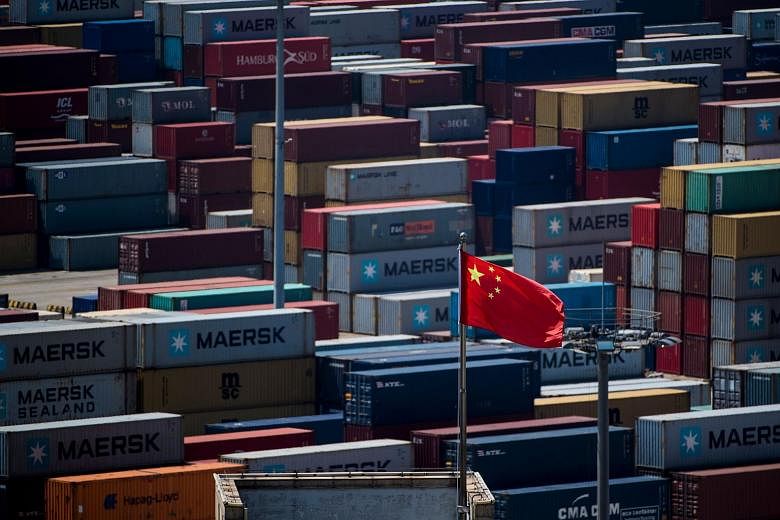The trade war between the world's two largest economies, with possible far-reaching global effects, has begun as the United States' punitive tariffs on US$34 billion (S$46 billion) worth of Chinese goods kicked in and China retaliated with equivalent measures.
Ahead of the 25 per cent additional tariffs taking effect yesterday at 12.01am Eastern Time in the US, or midday in Beijing, US President Donald Trump signalled that he was digging in for a long fight. He said this first round of tariffs would be followed quickly by levies on another US$16 billion of Chinese goods.
"You have another 16 (billion US dollars) in two weeks, and then, as you know, we have US$200 billion in abeyance, and then after the US$200 billion, we have US$300 billion in abeyance. Okay? So, we have 50 plus 200 plus almost 300," he told reporters on Thursday.
In response to the US tariffs, Chinese Premier Li Keqiang indicated resolve on the part of the Chinese to meet any American move head-on.
"China will never start a trade war but if any party resorts to an increase of tariffs, then China will take measures in response to protect development interests," he said in Sofia, Bulgaria.
In Beijing, the Ministry of Commerce issued a statement shortly after the US tariffs kicked in accusing the US of igniting "the largest trade war in economic history".
Hours later, the Foreign Ministry said at a regular press briefing that China had implemented retaliatory tariffs. "After the US unfairly raised tariffs against China, China immediately put into effect raised tariffs on some US goods," said Foreign Ministry spokesman Lu Kang.
The US imposed tariffs on products linked to China's high-tech industries, aimed at disrupting its Made in China 2025 strategy to move up the value chain. China placed levies on US exports including soya beans and pork, hitting farmers in states that supported Mr Trump in the 2016 election.
Beijing yesterday also lodged a complaint with the World Trade Organisation against the US tariffs.
Separately, Russia yesterday decided to impose 25 per cent to 40 per cent extra duties on some US imports in retaliation for similar US moves against Russian goods.
In a note on the China-US trade war, ING chief economist Rob Carnell said that while this is not "economic Armageddon", it is "applying the brakes to a global economy that has less durable momentum than appears to be the case".
Analysts said such a trade war would disrupt global supply chains and raise prices for consumers worldwide. There was a possibility too that this war could drag on longer than expected, beyond the November mid-term elections in the US, not least because the tension is no longer restricted to trade, said OCBC economist Tommy Xie.
The US was now targeting China's high-tech companies and investments in the US, he said.
The underlying issue, he added, was about US competitiveness and its defence of its leadership in the global order against a rising power.
Concurring, Rabobank economist Michael Every said the US would go "very far" to block Chinese investments because there was strong bipartisan support to prevent China from achieving its goals to move up the value-added ladder and ultimately rival the US as a world power.
Chinese economist Hu Xingdou said that while China's development would be affected by the trade war, the effects would not be too deep so long as it kept its doors open and deepened its reforms.
SEE TOP OF THE NEWS

